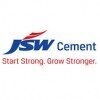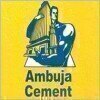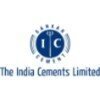Filter interviews by
Electrosteel Casting Graduate Engineer Trainee (Get) Interview Questions, Process, and Tips
Electrosteel Casting Graduate Engineer Trainee (Get) Interview Experiences
2 interviews found
I applied via Campus Placement and was interviewed in Jul 2024. There were 3 interview rounds.
25 mechanical question
(5 Questions)
- Q1. About internship
- Q2. First angle and third angel projection, trim
- Q3. Heat treatment process
- Q4. Safety procedure while working in site
- Ans.
Safety procedures on site are crucial for preventing accidents and injuries.
Always wear appropriate personal protective equipment (PPE) such as hard hats, safety goggles, and gloves.
Follow all safety guidelines and protocols set by the company or site supervisor.
Regularly inspect and maintain tools and equipment to ensure they are in good working condition.
Attend safety training sessions to stay updated on best practic...
- Q5. About college project and internship experience
Separately given chance to everyone to spoke
Interview Preparation Tips
Graduate Engineer Trainee (Get) Interview Questions & Answers
posted on 19 Jun 2024
I applied via Campus Placement and was interviewed in May 2024. There were 4 interview rounds.
(1 Question)
- Q1. Resume shortlist (Not based on CGPA)
Basic Core technical Questions
GD Topic - Women Empowerment, Does they should be employed only for Soft skills or they are suited for Hard skills and core field.
(6 Questions)
- Q1. Internship undergone and interrupted by questions
- Q2. Project (Specifically in Ferrous alloys)
- Q3. How Extraction of Zinc is done
- Ans.
Zinc is extracted from its ore through a process called roasting and then electrolysis.
Zinc ore is first crushed and then concentrated by froth flotation.
The concentrated ore is then roasted in the presence of air to form zinc oxide.
Zinc oxide is then reduced to zinc metal using electrolysis.
The zinc metal is then melted and cast into ingots for further processing.
- Q4. Why fines are not added in Blast Furnace
- Ans.
Fines are not added in Blast Furnace due to their tendency to block the flow of gases and decrease efficiency.
Fines have a tendency to block the flow of gases in the Blast Furnace, reducing efficiency.
Adding fines can lead to uneven distribution of materials and hinder the smelting process.
Fines can also cause issues with permeability and reduce the quality of the final product.
To avoid these problems, fines are usuall...
- Q5. Reactions in BF
- Ans.
Reactions in BF refer to the chemical reactions that occur in a blast furnace during the production of iron.
Reactions involve the reduction of iron ore (Fe2O3) to iron (Fe) using carbon monoxide (CO) as the reducing agent.
Other reactions include the formation of slag from impurities in the iron ore and the reduction of other metal oxides present.
The overall reaction in a blast furnace can be represented as: Fe2O3 + 3CO...
- Q6. Difference of Iron making and Steel Making
- Ans.
Iron making involves extracting iron from iron ore, while steel making involves refining iron into steel.
Iron making involves processes like blast furnace and direct reduction, while steel making involves processes like basic oxygen furnace and electric arc furnace.
Iron making typically produces pig iron, while steel making produces various grades of steel.
Iron making is the first step in the production of steel, as st...
Interview Preparation Tips
Be bold and speak correct answers, Not blabbering
Top trending discussions






Interview questions from similar companies

Graduate Engineer Trainee (Get) Interview Questions & Answers
HIL Limitedposted on 1 Jun 2021
I applied via Campus Placement and was interviewed before Jun 2020. There were 3 interview rounds.
Interview Questionnaire
2 Questions
- Q1. Resume questions
- Q2. Why get into HIL? Why not go for MTech Or MBA
Interview Preparation Tips

Graduate Engineer Trainee (Get) Interview Questions & Answers
JSW Cementposted on 6 Oct 2017
I appeared for an interview before Oct 2016.
Interview Questionnaire
4 Questions
- Q1. Tell us about yourself
- Ans.
I am a recent graduate with a degree in engineering, eager to learn and grow in the field.
Recent graduate with a degree in engineering
Passionate about learning and growing in the field
Eager to apply my knowledge and skills in a professional setting
- Q2. Explain the project you did in your college?
- Ans.
Designed and implemented a solar-powered irrigation system for agricultural fields.
Researched solar panel efficiency and irrigation system design
Collaborated with local farmers to understand their needs
Implemented a prototype system and tested it in a field setting
Analyzed data on water usage and crop yield to evaluate system effectiveness
- Q3. And some more questions related to Chemical Engineering
- Q4. Asked about my willingness of working in that particular location
Interview Preparation Tips
Experience: We were asked to give the test within a time span of 60 minutes.
Tips: Just be confident and don't spend too much time on a single question. Try to answer as many questions as possible in case of no negative marking.
Duration: 1 hour
Total Questions: 60
Round: Technical + HR Interview
Experience: I was asked about my major project and my introduction and a few simple questions about my subject. Also about why wasn't I placed till that interview.
Tips: Just be frank and answer only what you know, don't try to fake anything or mislead them. Be confident in your answers
College Name: NIT Bhopal

Graduate Engineer Trainee (Get) Interview Questions & Answers
Ambuja Cementsposted on 18 Nov 2020
I applied via Campus Placement and was interviewed before Nov 2019. There were 4 interview rounds.
Interview Questionnaire
5 Questions
- Q1. 1. Tell me about yourself(most expected question and hence well prepared) then next HR questions were derived from my introduction.
- Q2. 2. Where do you see yourself 5 year down the line?
- Q3. 3. How do you manage your studies along with extracurricular activities? And more hobby based questions
- Q4. 4. Do you want to study further?
- Q5. Core technical questions, which i answered easily
Interview Preparation Tips

Graduate Engineer Trainee (Get) Interview Questions & Answers
Ambuja Cementsposted on 20 Aug 2021
I applied via Campus Placement and was interviewed before Aug 2020. There were 4 interview rounds.
Interview Questionnaire
1 Question
- Q1. My interview was Technical cum HR. Most of the questions were asked from Manufacturing, Thermodynamics, Industrial Management.
Interview Preparation Tips

Graduate Engineer Trainee (Get) Interview Questions & Answers
Infra.Marketposted on 9 Mar 2024
(2 Questions)
- Q1. Planger height from bottom for normal consistemcy
- Ans.
Planger height from bottom for normal consistency is typically around 9 inches.
Planger height from bottom for normal consistency is usually around 9 inches.
This measurement is important in industries like food processing to ensure proper consistency of products.
Examples of products where planger height is measured include dough, batter, and other viscous substances.
- Q2. 5-7mm from bottom
(2 Questions)
- Q1. Slump test value
- Ans.
Slump test value is a measure of the consistency of freshly mixed concrete.
Slump test is used to determine the workability of concrete.
The value is measured in millimeters and indicates how easily the concrete can be placed, compacted, and finished.
A higher slump value indicates a more workable mix, while a lower value indicates a stiffer mix.
For example, a slump value of 100mm would be considered highly workable.
- Q2. 33-37 from top of theplunger

I applied via Campus Placement and was interviewed before Oct 2021. There were 3 interview rounds.
Technical and english question
Topic was given to all student and had discussion
(4 Questions)
- Q1. Introduction of yourself??
- Q2. Which project you completed
- Ans. In college projects, have depth knowledge
- Q3. Where did you completed training??
- Q4. Give the answer and share your experience
Interview Preparation Tips

Graduate Engineer Trainee (Get) Interview Questions & Answers
Nuvoco Vistasposted on 4 Apr 2024
I applied via Campus Placement and was interviewed in Mar 2024. There were 3 interview rounds.
(2 Questions)
- Q1. Definition of cement
- Ans.
Cement is a binding material used in construction to hold together materials like sand and gravel.
Cement is a fine powder made from limestone, clay, and other minerals.
When mixed with water, cement forms a paste that hardens and binds materials together.
Common types of cement include Portland cement, which is used in most construction projects.
Cement is a key ingredient in concrete, mortar, and grout.
It plays a crucial...
- Q2. Ingredient of cement
- Ans.
The main ingredients of cement are limestone, clay, and gypsum.
Limestone is the main component, providing calcium.
Clay is used to provide silica, alumina, and iron oxide.
Gypsum is added to control the setting time of the cement.
Other additives like fly ash or slag may also be used for specific properties.
GD topic is human vs ai
(2 Questions)
- Q1. Grade of cement
- Ans.
Grade of cement refers to the strength of the cement based on the compressive strength it can achieve after 28 days of curing.
Cement grades are classified as 33, 43, and 53 based on their compressive strength in MPa.
Grade 33 cement has a compressive strength of 33 MPa, grade 43 has 43 MPa, and grade 53 has 53 MPa.
Higher grade cement is used for construction projects that require high strength like bridges and high-rise
- Q2. Which ingredient provide strength and hardnes in cement
- Ans.
The ingredient that provides strength and hardness in cement is calcium silicate.
Calcium silicate reacts with water to form calcium silicate hydrate, which contributes to the strength and hardness of cement
Other ingredients like alumina and iron oxide also contribute to the strength of cement
The ratio of these ingredients in cement mix determines the final strength and hardness of the cement
Interview Preparation Tips

Graduate Engineer Trainee (Get) Interview Questions & Answers
HIL Limitedposted on 5 Jan 2023

Round was completely full of aptitude questions and basic mechanical questions
The topic for my gd was is ev the future?
(1 Question)
- Q1. Here i was asked mechanical questions from all subjects and some of the questions are: 1. Gear box usage and its material 2.cast iron and steel properties and usages 3. Boiler application and working 4. T...
(3 Questions)
- Q1. Where do you see yourself in next 5 years
- Q2. Would you like to relocate to chennai
- Q3. How best can i know you?
Interview Preparation Tips
Electrosteel Casting Interview FAQs
Tell us how to improve this page.
Electrosteel Casting Interviews By Designations
- Electrosteel Casting Assistant Engineer Interview Questions
- Electrosteel Casting Diploma Trainee Engineer Interview Questions
- Electrosteel Casting Safety Officer Interview Questions
- Electrosteel Casting Deputy Manager Interview Questions
- Electrosteel Casting Production Shift Incharge Interview Questions
- Electrosteel Casting Assistant Manager Interview Questions
- Electrosteel Casting Graduate Engineer Trainee (Get) Interview Questions
- Electrosteel Casting Shift Incharge Interview Questions
- Show more
Interview Questions for Popular Designations
- Graduate Apprentice Trainee Interview Questions
- Graduate Apprenticeship Trainee Interview Questions
- Graduate Trainee Interview Questions
- Graduate Engineer Interview Questions
- Production Graduate Engineer Trainee Interview Questions
- Graduate Student Interview Questions
- Graduate Apprentice Interview Questions
- Post Graduate Engineer Trainee [pget] Interview Questions
- Show more
Electrosteel Casting Graduate Engineer Trainee (Get) Interview Process
based on 2 interviews
Interview experience
Graduate Engineer Trainee (Get) Interview Questions from Similar Companies
Fast track your campus placements

Electrosteel Casting Graduate Engineer Trainee (Get) Reviews and Ratings
based on 4 reviews
Rating in categories
|
Assistant Manager
88
salaries
| ₹4.3 L/yr - ₹12 L/yr |
|
Engineer
80
salaries
| ₹2.8 L/yr - ₹6.5 L/yr |
|
Senior Engineer
67
salaries
| ₹4 L/yr - ₹7.5 L/yr |
|
Assistant Engineer
59
salaries
| ₹2.5 L/yr - ₹4.7 L/yr |
|
Deputy Manager
50
salaries
| ₹6 L/yr - ₹11.5 L/yr |

Welspun World

Kohler

Wonder Cement

Nuvoco Vistas
- Home >
- Interviews >
- Electrosteel Casting Interview Questions >
- Electrosteel Casting Graduate Engineer Trainee (Get) Interview Questions















